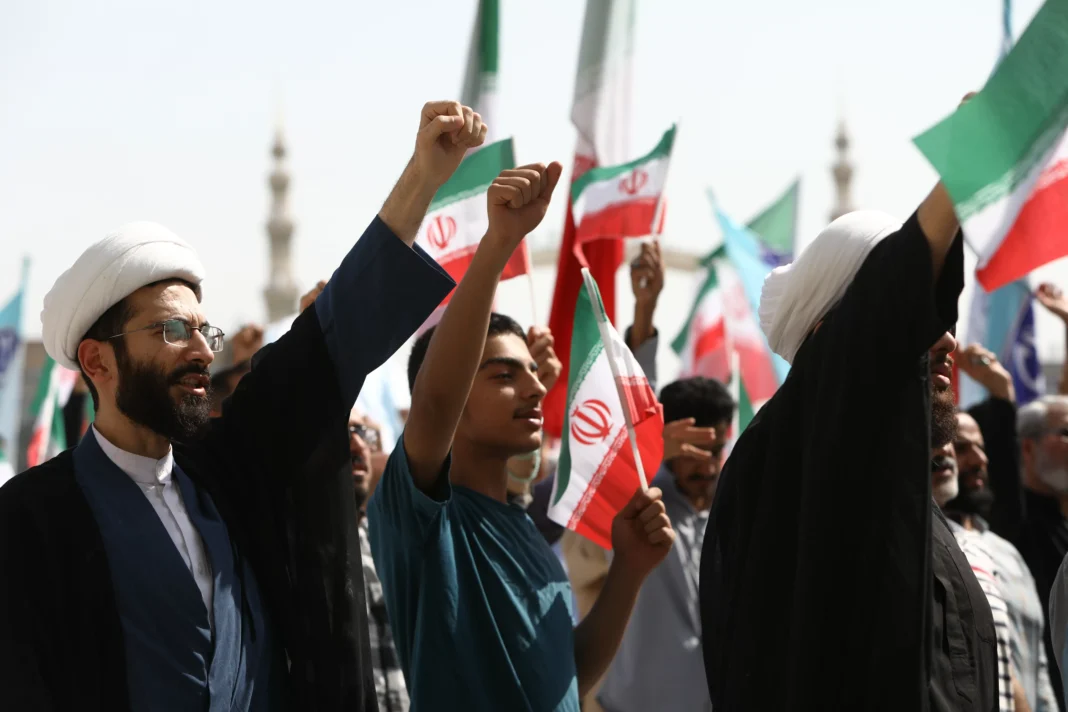In a bold and decisive move, Israel launched airstrikes on Iranian targets in Syria, just days after successfully neutralizing the threat posed by Hezbollah. This latest development has sent shockwaves through the Middle East, exposing deep regional shifts and vulnerabilities.
The timing of Israel’s strike could not have been more strategic. With the recent defeat of Hezbollah, a powerful Iranian proxy, Israel saw an opportunity to strike at the heart of Tehran’s aggressive agenda in the region. This move has not only dealt a severe blow to Iran’s ambitions, but it has also sent a strong message to the rest of the world that Israel will not stand idly by while its enemies continue to threaten its security.
The airstrikes, which targeted Iranian military installations and weapons depots in Syria, were carried out with precision and efficiency. The Israeli Defense Forces (IDF) have once again demonstrated their superior military capabilities, showcasing their ability to strike at the heart of their enemies’ operations, even in the face of significant challenges.
But this strike was not just about taking out Iranian targets. It was a calculated move to show Iran that its support of terrorist organizations, such as Hezbollah, will not be tolerated. For too long, Iran has been using these proxies to further its own agenda and destabilize the region. Israel’s strike is a clear message that this will not be allowed to continue.
This latest development has also exposed the shifting dynamics in the Middle East. The once-formidable alliance between Iran, Syria, and Hezbollah has been severely weakened, with Iran’s support for the terrorist group proving to be a liability rather than an asset. This has left Iran isolated and vulnerable, with its influence in the region greatly diminished.
Furthermore, Israel’s successful strike has also highlighted the ineffectiveness of Iran’s response. Tehran’s usual tactic of using its proxy forces to retaliate against Israel has failed, leaving them with no viable options. This has exposed their weakness and further undermined their position in the region.
The strike also has significant implications for Syria, a country that has been ravaged by years of civil war. The Israeli airstrikes have once again demonstrated that Israel will not allow Syria to become a staging ground for Iranian aggression. This has forced Syria to reassess its relationship with Iran and may lead to a decrease in Iranian influence within the country.
The impact of Israel’s strike has not gone unnoticed by the international community. Many countries, including the United States and the United Kingdom, have expressed their support for Israel’s actions. This is a clear indication that Israel’s concerns regarding Iran’s aggressive behavior are shared by the international community.
As expected, Iran has denounced the Israeli strike and threatened retaliation. But their empty rhetoric and lack of action only serve to reinforce the fact that Israel’s actions have dealt a significant blow to Iran’s capabilities. This has put Iran in a precarious position, with its aggressive behavior now coming at a high cost.
The strike also serves as a reminder that Israel will do whatever it takes to protect its citizens and maintain its security. This is not the first time that Israel has taken decisive action to defend itself, and it certainly will not be the last. The country has proven time and again that it will not hesitate to take preemptive measures to prevent its enemies from gaining the upper hand.
In conclusion, Israel’s strike on Iranian targets in Syria marks a significant turning point in the region. It has exposed the vulnerabilities and weaknesses of Iran and its proxies, while also showcasing Israel’s military capabilities and determination to protect its citizens. This latest development has sent a strong message to Iran and the rest of the world that Israel will not back down in the face of aggression. It is a clear demonstration of Israel’s commitment to maintaining peace and stability in the region, even in the face of adversity.



